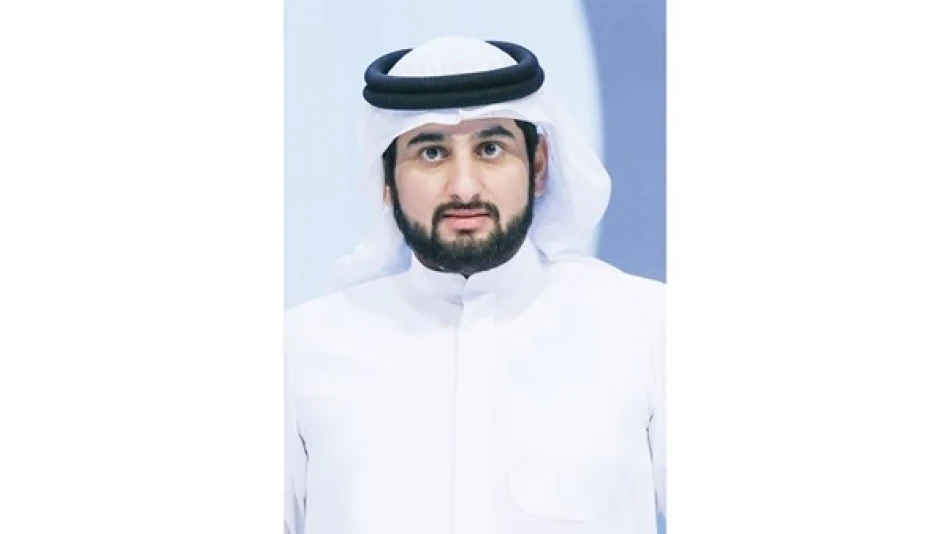
UAE Leader's Global Humanitarian Initiatives Uphold Human Dignity and Deliver Lasting Impact
UAE Reinforces Global Humanitarian Leadership Through Strategic Institutional Vision
The United Arab Emirates is doubling down on its position as the world's leading humanitarian donor, with senior leadership emphasizing a systematic, institutional approach to global aid that has already impacted hundreds of millions worldwide. On World Humanitarian Day, Dubai's leadership outlined an ambitious vision that positions the UAE not just as a generous donor, but as an innovator in sustainable humanitarian impact across health, education, and community empowerment sectors.
Strategic Humanitarian Diplomacy Takes Center Stage
Sheikh Ahmed bin Mohammed bin Rashid Al Maktoum, Deputy Ruler of Dubai and Supreme President of the Mohammed bin Rashid Al Maktoum Charitable and Humanitarian Foundation, articulated a comprehensive humanitarian philosophy that extends beyond traditional aid models. His emphasis on "principles aimed at achieving human welfare and promoting values of empathy, solidarity, and genuine brotherhood" signals the UAE's intention to leverage humanitarian work as a cornerstone of its soft power strategy.
This approach mirrors successful models employed by other regional powers, but with a distinctly Emirati twist that emphasizes institutional sustainability over ad-hoc charitable giving. The UAE's consistent ranking as the world's largest humanitarian donor reflects not just financial capacity, but strategic planning that other Gulf states are now attempting to replicate.
Institutional Innovation in Crisis Response
The Mohammed bin Rashid Al Maktoum Charitable and Humanitarian Foundation, established in 1997, represents a quarter-century experiment in professionalizing humanitarian aid. Unlike traditional charity models that often struggle with consistency and impact measurement, the foundation has developed what officials describe as "pioneering, innovative, and renewable humanitarian initiatives" with measurable outcomes across multiple sectors.
This institutional approach addresses a critical gap in global humanitarian response: the need for predictable, long-term support that enables communities to build resilience rather than merely survive crises. The foundation's focus on "empowerment and development" suggests a sophisticated understanding of development economics that goes beyond emergency relief.
Economic and Geopolitical Implications
The UAE's humanitarian leadership carries significant economic and strategic weight in an increasingly multipolar world. As traditional Western donors face budget constraints and domestic political pressures, the UAE's commitment to expanding its humanitarian footprint creates opportunities for enhanced diplomatic influence and market access.
Competitive Advantage in Global Markets
Abdullah Mohammed Al Bastaki, Secretary-General of Dubai's Executive Council, emphasized the "continuous development of projects and programs" both domestically and internationally. This dual focus creates a testing ground for innovations that can be scaled globally, potentially positioning UAE-based organizations as preferred partners for international development projects.
The foundation's comprehensive approach across health, education, and relief sectors also creates synergies with the UAE's broader economic diversification strategy. Expertise developed through humanitarian work often translates into competitive advantages in related commercial sectors, from healthcare technology to educational services.
Regional Leadership and Global Positioning
The timing of these announcements reflects broader regional dynamics as Gulf states compete for influence in Africa, Asia, and other developing regions. The UAE's emphasis on "unifying humanitarian efforts" suggests an ambition to coordinate regional humanitarian responses, potentially positioning Dubai as a hub for development finance and aid coordination.
Sustainable Impact Model
The foundation's commitment to "sustainable humanitarian work" addresses growing criticism of traditional aid models that create dependency rather than self-sufficiency. This approach aligns with global trends toward impact investing and sustainable development goals, potentially attracting partnerships with international organizations and private sector actors seeking measurable social returns.
As global humanitarian needs continue to grow amid climate change, conflict, and economic instability, the UAE's institutional approach to aid delivery may become a template for other emerging donors. The country's ability to maintain its leading position will depend on its capacity to innovate in program delivery while scaling impact across an expanding global footprint.
Most Viewed News

 Layla Al Mansoori
Layla Al Mansoori






